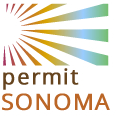- Accessory Units and Junior Units
- Agricultural Uses
- Agricultural Zoning Ordinance
- Cannabis Program
- County Code for Permit Sonoma
- Housing Urgency Ordinances
- Renewable Energy
- Septic Regulations
- Universal Design
- Water Efficient Landscape Ordinance
-
- Winery Events Calendar
- General Noise Standards
- Winery Use Permit Application Process
- Application Fees
- Required Site Specific Studies for Wineries
- Private Guest Accommodations
- Examples of Winery Project Descriptions and Conditions of Approval
- Areas of Local Concentration
- Draft Guidelines Dry Creek Valley
- Traffic Studies
- Use Permit Application Forms
- Document and Map Listings
- Z Accessory Dwelling Unit Exclusion Removal
- Back to Housing Initiatives
Single-Family Development Fee Deferral Program

Purpose
All development, including single-family residential development, in the County of Sonoma is required to contribute to the County’s affordable housing program by providing affordable units, paying an in-lieu fee, or providing an equivalent alternative.
For single-family development, an accessory dwelling unit may be constructed and restricted for rent to qualified low-income households fulfill affordable housing obligations. This method is described in Section 26-89-040(C)(5)(c) of the Sonoma County Zoning Ordinance as deferring payment of the affordable housing fee that would otherwise be due for the construction of a new single-family home.
Applicability
If a new single-family dwelling is proposed, a property owner may elect to build and designate as affordable an accessory dwelling unit (ADU) to meet the affordable housing requirements of the new single-family dwelling. An ADU must be allowed under current regulations.
Permit Requirements
An applicant must submit an Affordable Housing Proposal at the time of the initial project application. The proposal must include a site plan and a detailed proposal statement describing how the project will satisfy the requirements of Article 89 – Affordable Housing Program Requirements and Incentives.
Prior to issuance of the building permit for the single-family dwelling, an Affordable Housing Fee Deferral Agreement must be recorded after execution by the property owner and the Executive Director of the Sonoma County Community Development Commission. The Agreement ensures that the unit will remain available for rent to a qualified low-income household at an affordable rent.
Summary of Provisions
Every year that the ADU is rented in compliance with the Affordable Housing Fee Deferral Agreement, the affordable housing fee will be automatically deferred. Affordable ADUs are monitored for ongoing compliance by the Sonoma County Community Development Commission. In order to maintain compliance, the unit must be made available for rent and occupied by low-income households, and the rent charged must be limited to rents affordable to low-income households. (Income limits and rent limits are published annually by the Community Development Commission.) Property owners must submit annual compliance reports to the Community Development Commission and pay an annual monitoring fee. (As of January 1, 2020, the fee is $75 per year.) The term of the Agreement is 30 years and the Agreement is a covenant that runs with the land.
Reconveyance of Affordable Housing Agreement
Should the property owner come out of compliance with the terms of the Agreement, or choose to end participation in the program, then the affordable housing fee will be immediately due and payable to the County before the agreement can be rescinded ("reconveyance"). Credit shall be given for each year that the property owner has been in compliance with the Agreement; and the affordable housing fee shall be pro-rated for the remainder of the term, using the fee amount in effect at the time that the owner ceases to be in compliance.
A property owner must apply for a zoning permit in order to rescind the Agreement.
References
Article 89 – Affordable Housing Program Requirements and Incentives
Sonoma County Income and Rent Limits (use limits for State and Local Programs)

 Translate
Translate